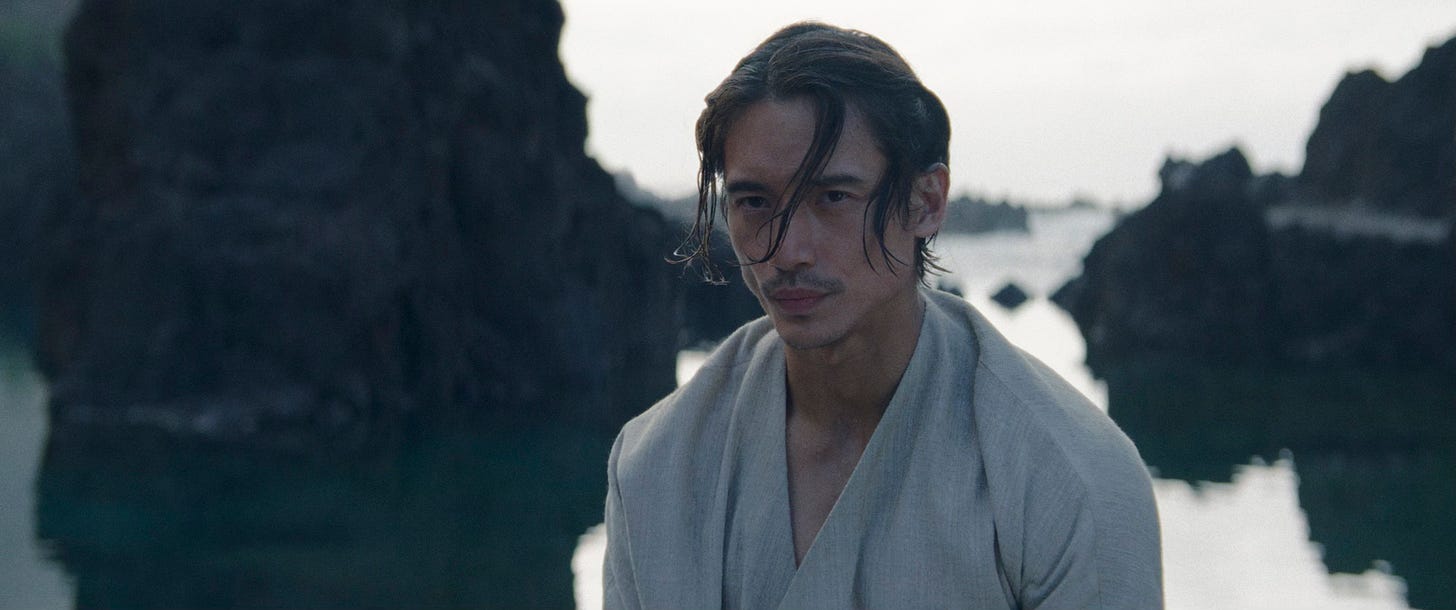I Finally Figured Out My Issue with 'The Acolyte'
Only a Sith deals in absolutes, but at least they're dealing.
[Spoilers ahead for the first six episodes of The Acolyte]
I’ve now watched six episodes of the new Star Wars series The Acolyte, and it still hasn’t clicked with me, but I was unable to articulate why until now. While I don’t think a show needs to show its entire hand in its first two episodes, it’s good to know what it’s trying to do and what it’s about. I’m not sure The Acolyte has ever fully figured that out, or if it has, it’s working to keep its major revelations obscured in maddening redirects and narrative tangents. The series began as a murder-mystery investigation, and now that’s basically been wrapped up, discarded, oh and also there was a coven of force-using witches at one point, but now we’re once again seeing there’s a Sith who wants to take down the Jedi, and it’s all just kind of exhausting. As much as the show has done with its protagonist twins Mae and Osha (Amandla Stenberg), I’m still struggling to see much in them beyond Mae’s “I want to be bad, but maybe I want to be good,” and Osha’s “I want to be good, but maybe I want to be bad.”
But what came into focus in the show’s sixth episode, “Teach / Corrupt,” is that rather than trying to tell the story through Mae and Osha, the show had a unique and compelling protagonist in Qimir (Manny Jacinto), a Sith lord looking for an apprentice. The best thing this entire show has done isn’t to simply show that the Jedi are hypocrites or that their authority over use of the Force is arbitrary and even vaguely fascistic despite its new-age/monastic trappings. It’s to interrogate why the Sith are “evil” and what constitutes their ideology beyond giving into feelings. Nothing in Star Wars has really explored Sith ideology in a robust way1, and when you have an actor as seductive and empathetic at Jacinto, then it feels like a missed opportunity to not simply make his character the focus instead being like, “Uh, so for these first few episodes we’ll need you to pretend like you’re some cowardly smuggler because we can play it for a reveal later.”

To tell this story, you should follow someone who is going the way of the Sith, and while I’m sure there will be some kind of flashback or exposition to tell us about Qimir as well as some dark secret that Osha’s former master Sol (Lee Jung-jae) is hiding that perhaps has some connection. This all seems like a fairly roundabout way to getting us to some grey area that says, “The Sith aren’t all bad, and the Jedi aren’t all good,” which is fine, but the narrative to get us there has been painfully shoddy when there’s a pretty clean line if you simply follow Qimir’s journey.
Instead, we’ve gone through a murder mystery, an introduction to Force Witches, a confrontation with a secret Sith Lord, killing off characters, having characters swap places, and it’s all played as not only spectacularly laborered in its execution, but also tonally dissonant as well. “Teach / Corrupt” showed the difficulty of trying to keep this all together when there’s a comical moment of an adorable little droid spitting starship oil in Mae’s eye, and then a few scenes later we’re on a close-up on Jecki Lon’s (Dafne Keen) lifeless gaze. It’s not that the show only has to be one thing (if the show has a thesis, that does seem to be it since both Mae and Osha bristle at such kinds of containment), but you can hit different notes within the same tone. Andor is not a humorless slog, but it is steadfastly a political show examining what spurs people to rebellion across social and class backgrounds. By the time you reach the end of the third episode (of the twelve that compromise the first season), you know exactly what kind of show you’re watching and the main characters you’re dealing with even if narrative developments remain a mystery.
Everytime I turn on an episode of The Acolyte, I never feel like there’s a sense of momentum or even set stakes. Is this a battle for the souls of Osha and Mae? Is this all just a drawn-out prelude to an inevitable lightsaber battle between the two sisters and one kills the other? That’s sad, but also the show gives us precious little of the sisters together. They’re bonded because they’re sisters, but the show provides little specifity to that relationship, instead preferring to use them as vehicles for the vague questions of light side/dark side allegiance.
Perhaps in its final two episodes, The Acolyte will finally cohere. Maybe showrunner Leslye Headland has purposefully crafted a circumspect narrative that will only make itself clear at its resolution. But right now, I’ve got a bad feeling about this.
I should probably note here that if you want to be like, “There’s an episode of Clone Wars that blah blah blah blah—no. We’re not doing that. I’m glad you like the animated series, but I also know that none of the animated shows are built entirely around a single Sith; I’m talking about a limited series where they’re telling a single story across a set number of episodes.”



